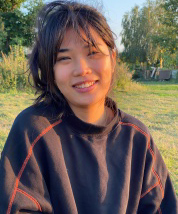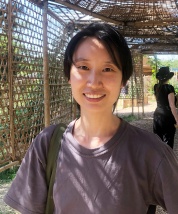Guest Workers
Migrant women’s stories repeated across borders. A dispatched Korean nurse to Germany asks migrant people in Korea if they are okay.
Where did the Korean-German nurses, or 'Guest Workers', go?
We are revisiting women who went to Germany after half a century. We remove the narrative of nationalism deeply rooted in Korean society and listen to voices based on unheard history and identity of individuals.
Today, their voices are echoed not far away.
From a country of migrants to a country of immigrants, Korea has now become home to guest workers. In an age of the increasingly gendered nature of immigration and outsourced domestic labor, migrant's storiesin Korea deserves attention.
From the struggle for the right to stay in Germany to the anti-discrimination law campaign in Korea in 2022. The time and place may be different, but the lives of migrants are connected to each other. Meet the guest workers in the field of life transcending the times and borders.
I had the pleasure of talking to first-generation Korean migrant women who arrived in Germany 50 years ago to volunteer at a hospice organization for Koreans. Their stories were beyond anything I could have imagined.
Korean nurses and miners dispatched to Germany can be found in textbooks and propaganda films as contributors to Park Chung-hee's economic development plan. They are portrayed as our innocent sisters and brothers. However, few people are aware of their pro-democracy movement and the fight for the right to stay in Germany in the 1970s.
I thought as I saw them pioneering various forms of life at their old age. Have I ever met a retired immigrant in Korea?
European society and Korean society are moving forward with a 50-year time difference. Is our society ready to confront the perceptions, bias, and unreasonable discrimination against immigrants who are living with us in various ways?


(54999) 2F, JEONJU Cine Complex, 22, Jeonjugaeksa 3-gil, Wansan-gu, Jeonju-si, Jeonbuk-do, Republic of Korea
T. +82 (0)63 288 5433 F. +82 (0)63 288 5411
(04031) 4F, 16, Yanghwa-ro 15-gil, Mapo-gu, Seoul, Republic of Korea
T. +82 (0)2 2285 0562 F. +82 (0)2 2285 0560
(54999) JEONJU Cine Complex, 22, Jeonjugaeksa 3-gil, Wansan-gu, Jeonju-si, Jeonbuk-do, Republic of Korea
T. +82 (0)63 231 3377
Privacy PolicyTerms of service
COPYRIGHT © JEONJU International Film Festival ALL RIGHTS RESERVED (M2)